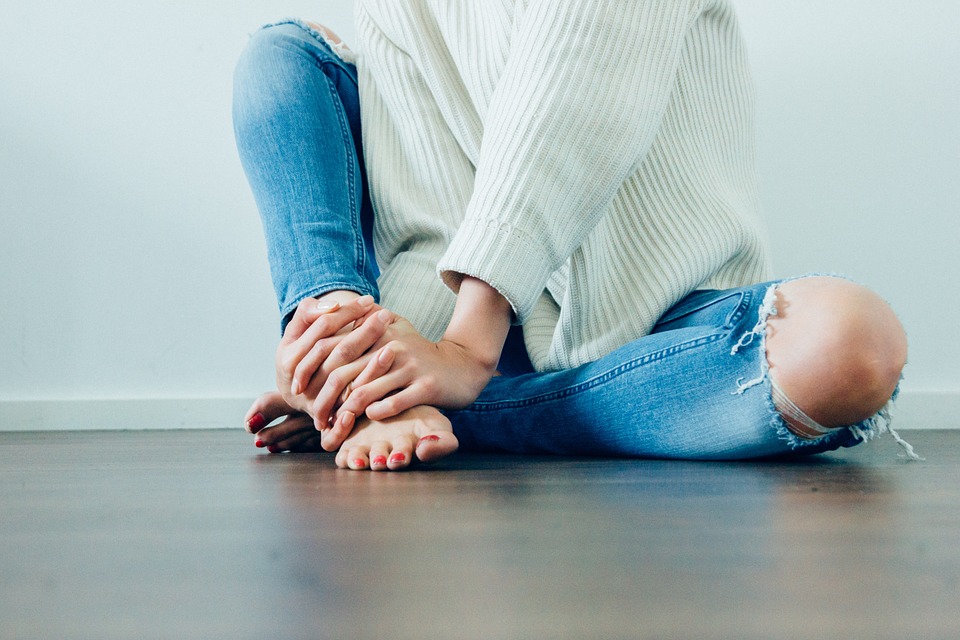Problems with knees are a real drag
Sore knees afflict 40% of adults and more than 70% of people over 50. Do you also know the unpleasant feeling when you have a swollen, crackling, reddened knee and you can't even go down the stairs? There can be many reasons why your knees hurt.
For a long time now, sore knees have not been a problem only of retirees who walk with a cane. Ever younger and younger people are afflicted by it. And it's not always caused by an injury. While the pain caused by an injury subsides over time, the pain caused by arthritis does not.
Knee – the most complex joint in the human body
It is composed of the lower end of the femur, the upper end of the tibia, the calf bone and the patella. Everything is stabilized by the joint capsule, internal and external lateral ligament, cruciate ligament and meniscus (the so-called intra-articular stabilisers). Muscles, otherwise called dynamic stabilisers, are just as important.

Why do the knees hurt?
The cause may not always be in the pain area. It may also be caused by the thyroid or by psoriasis.
Inadequate foot care is a common cause of knee pain. A healthy foot serves as a support for proper posture. And that is the basis of a pain-free movement.
Injury
Another cause may be an injury. Injuries are divided into soft tissue injuries (menisci, ligaments) and bone structure injuries. Excessive loading of the knee leads to wear of the articular cartilage which protects the adjacent bones from mechanical damage. Throughout our lives, it does not grow any further and its strength and flexibility decrease.
Sports often result in injuries to the menisci (most often the inner one), damage to the lateral or cruciate ligaments, and fractures.
Knee joint inflammation
It may be of a rheumatic origin. The joint tissue fills with fluid, the amount of joint fluid increases and the joint swells. It is often associated with effusion. The doctor will then remove the excess knee fluid from the knee using a procedure called a knee puncture.
Osteoarthritis
Painful joint disease of one or more joints. The most commonly affected are the knees, hips and shoulders. Its increased incidence is due to a bad lifestyle. It leads to reduced mobility and sometimes needs to be treated by a surgery. It is manifested by pain in the joint and its stiffness, swelling, deformity and lameness.
Check your kidneys
Knee problems are often related to the kidneys. As soon as you feel pain in your knee, start drinking kidney tea. Include foods rich in potassium (apricots, peaches, peas, beans and plums) in your diet. Limit the intake of potatoes and Solanaceae family of plants.

How to relieve pain?
- Find the cause of your problem. If there is no injury or illness behind it, consider whether you are not experiencing stress and overload your body.
- Adjust your diet. It should be balanced so that the body does not acidify.
- Try herbs. Drink tea blends intended to relieve joint pain and kidney teas. Try ointments and gels with comfrey and horse chestnut.
- Exercise regularly. Even a brisk walk is enough.
- Relax
Listen to your body. Pain indicates that something is wrong. Maybe just slow down a bit.


